Food and time may seem like two unrelated concepts, yet at Tales by Chapter, they intertwine into a sustainable journey. Here, every ingredient is not only cooked but also “listened to” and “transformed” through the art of fermentation at Tales. This ancient culinary technique, under the creative hands of the chefs, has become a storytelling language – about flavor, patience, and the zero-waste philosophy that Tales consistently upholds. When enjoying a dish, diners do not just savor its profound taste but also experience completeness: from nutritional value and respect for nature to a more sustainable culinary future.
What is fermentation? The unique fermented cuisine at Tales
Fermentation is one of humanity’s oldest culinary techniques, where natural microorganisms such as yeast, fungi, and bacteria transform ingredients, creating new flavors, textures, and nutritional value.
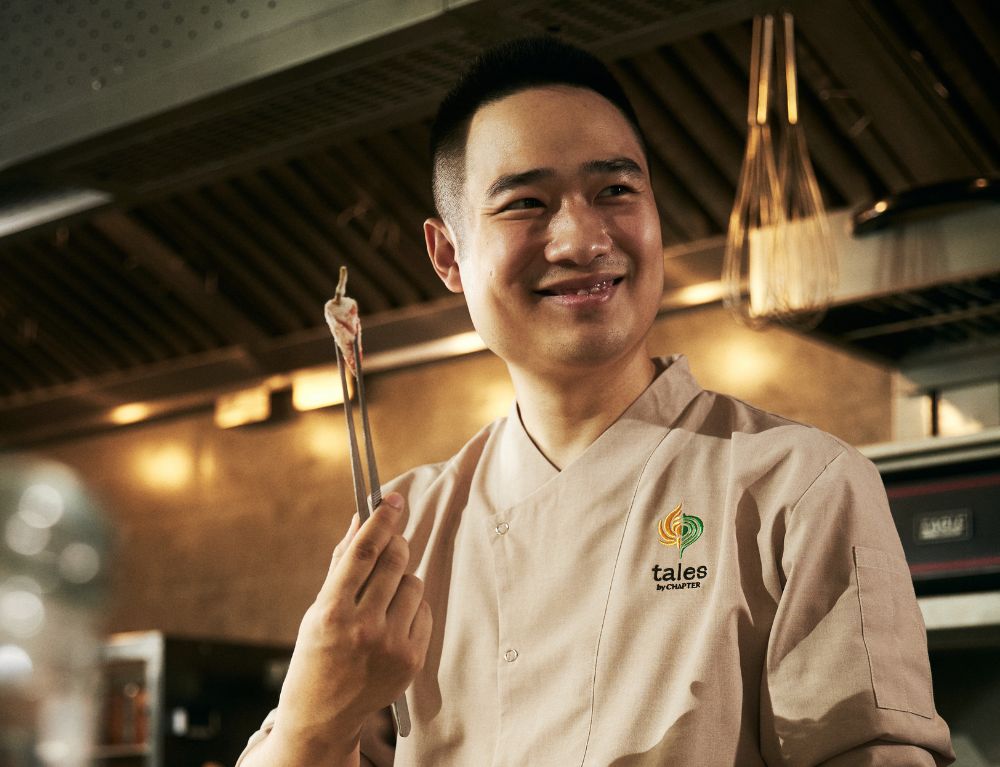
At Tales by Chapter, this technique is elevated into an art. Fermentation is not merely about preserving food but about reviving ingredients, adding layers of flavor, and weaving sustainability into every dish on the menu.
The main applications of fermentation at Tales include:
- Creating complex layers of flavor: deep, unique, and unforgettable.
- Preserving and extending the life cycle of ingredients: reducing waste and optimizing resources.
- Enhancing nutritional value: thanks to probiotics and enzymes beneficial for digestion and health.
The chefs at Tales regard time as an essential ingredient. Patience in waiting gives birth to dishes that feel both familiar and new, enriching the dining experience.
Dishes at Tales applying fermentation techniques
One of the most remarkable examples of fermentation at Tales is mushroom garum – a unique “vegetarian fish sauce” crafted from mushrooms. Instead of discarding mushroom stems and peels, which are often overlooked in cooking, the kitchen team transforms them into the main ingredient.
Combined with Koji, a traditional Japanese fermenting agent, Tales developed a completely plant-based fish sauce that still carries depth and umami richness. What makes it distinctive is the innovation of an ancient recipe: instead of relying solely on aging, the process is carefully temperature-controlled, resulting in a stable, nutritious, and well-balanced product suitable for modern cuisine.
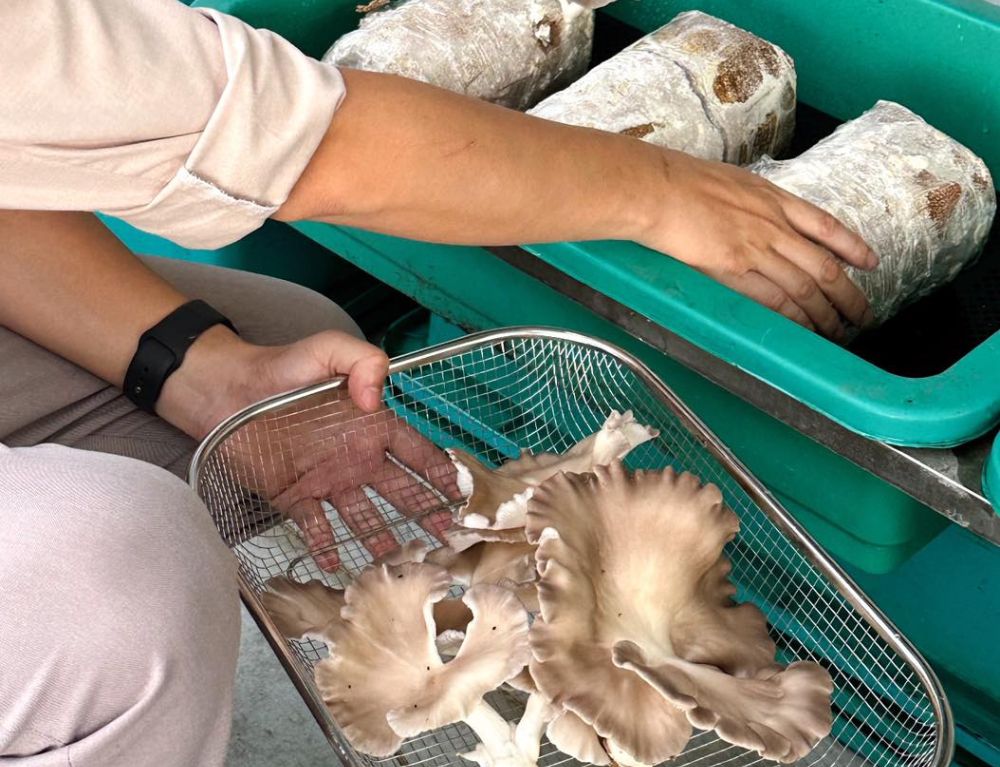
Another highlight in the menu is zero wine – a non-alcoholic fermented beverage. Created from local fruits, it undergoes controlled fermentation to preserve natural flavors while developing multiple layers of complexity. Zero wine evokes both familiarity, with the essence of Vietnamese fruits, and novelty, with the depth of fermentation. It has become the ideal choice for pairing menus. Beyond being a substitute for traditional wine, zero wine embodies Tales’ sustainability by maximizing local produce and offering a thoughtful option for every diner, including those who do not consume alcohol.
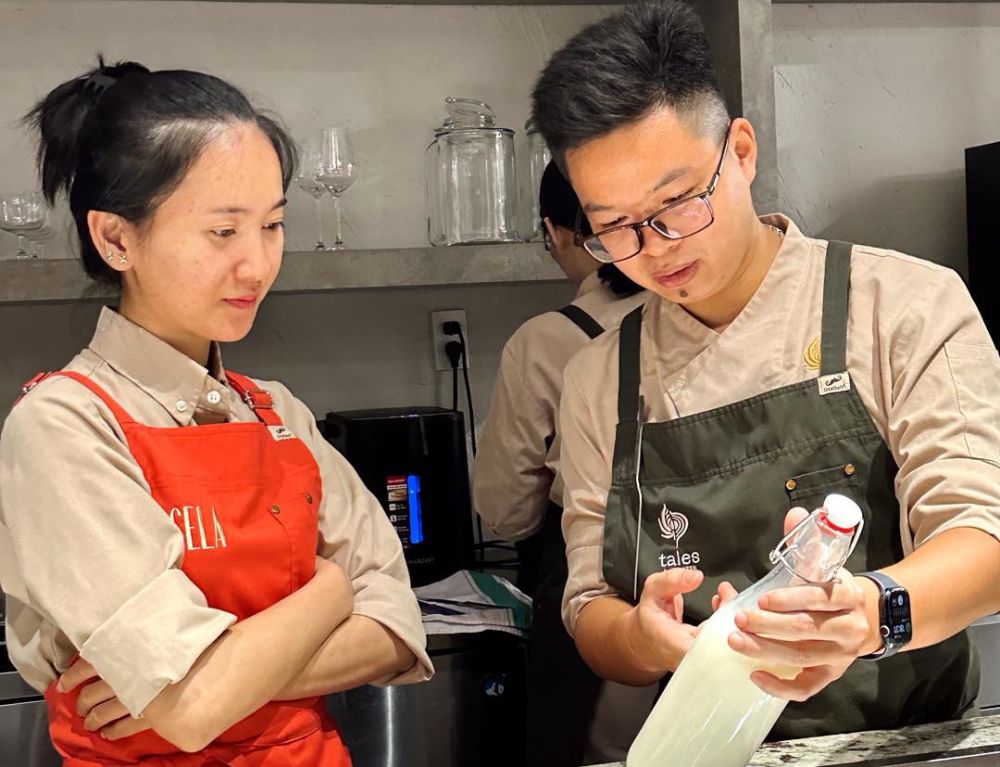
Beyond these highlights, Tales has developed a variety of other fermented creations. Pickled beetroot retains its natural vibrant color while adding refreshing acidity to balance rich main dishes. Natural vinegar from fruit peels, once discarded after juicing, now becomes a seasoning base for salads and sauces. Especially, miso from nut pulp stands as proof of Tales’ commitment to fully utilizing ingredients: by fermenting the pulp left after making nut milk, the team creates a protein-rich, umami-packed paste that is both delicious and sustainable.
Every dish and drink tells the story of how Tales transforms the concept of fermentation into a creative journey. Dining here is not just about taste; it’s also about patience, respect for ingredients, and nature’s infinite power of regeneration.
Chef Hung and the story of fermentation at Tales
At Tales, every carefully fermented ingredient passes through the hands of Chef Quoc Hung, the restaurant’s head chef. With nearly 10 years of experience in the F&B industry, Chef Hung has explored diverse culinary models, from Asian to European. He began his culinary journey with a passion for pastry, and gradually realized the vastness of gastronomy that fuels his endless curiosity.
At Tales, Chef Hung steps into a new “chapter” that connects him with nature. He dedicates himself to studying ingredient handling methods that honor their original flavors, allowing them to shine in every dish. Among these methods, fermentation is one of his favorite techniques, enabling him to preserve ingredients for longer periods while elevating their flavor complexity.
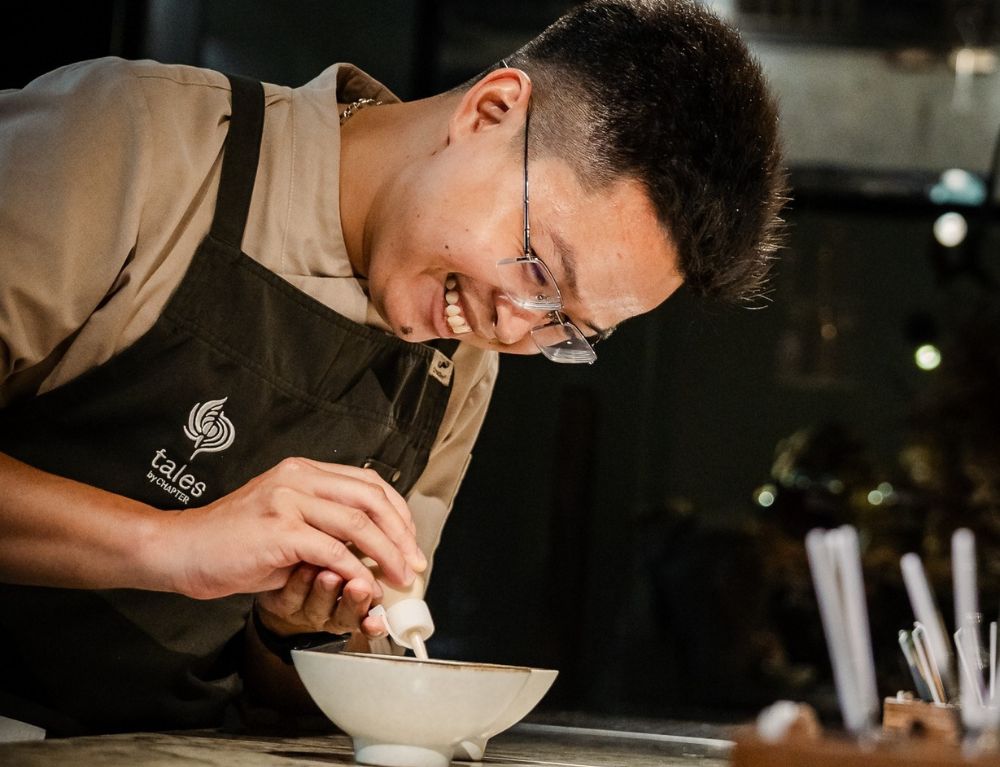
With Chef Hung: “Vegetables are not just vegetables; they are a vibrant universe with endless possibilities waiting to be explored.”
“ZERO” – the final mark of his journey at Tales – not only affirms the zero-waste philosophy but also lays the foundation for future sustainable culinary creativity.
Fermentation and the Zero-Waste philosophy at Tales by Chapter
At Tales by Chapter, fermentation is not only a cooking technique but also a bridge between culinary creativity and the zero-waste philosophy. The kitchen treats every ingredient – even parts often considered waste – as a source of potential to be transformed into something flavorful and valuable.
For example, fruit peels left after juicing are repurposed through natural fermentation to create handcrafted vinegar with delicate acidity, forming the base of many sauces and salads. Nut pulp, instead of being discarded, is reborn into baked goods, crunchy toppings, or even fermented into umami-rich miso. Even vegetable stems, often thrown away during prep, are simmered into vegetarian broths that bring depth and natural aroma to the Tales menu.
What makes this approach special is its patience and wholeness: not a single ingredient is wasted, and every leftover is given a new “life cycle.” With this ingenuity, Tales demonstrates that sustainable cuisine can indeed go hand in hand with fine dining. Diners don’t just enjoy refined flavors; they also resonate with a deeper philosophy – respecting ingredients fully, minimizing waste, and maintaining harmony with nature.
Thus, the art of fermentation Tales is more than just cooking; it is living proof that every grain, every fruit peel, every leftover holds the potential to become a new story, contributing to a culinary journey rooted in sustainability.
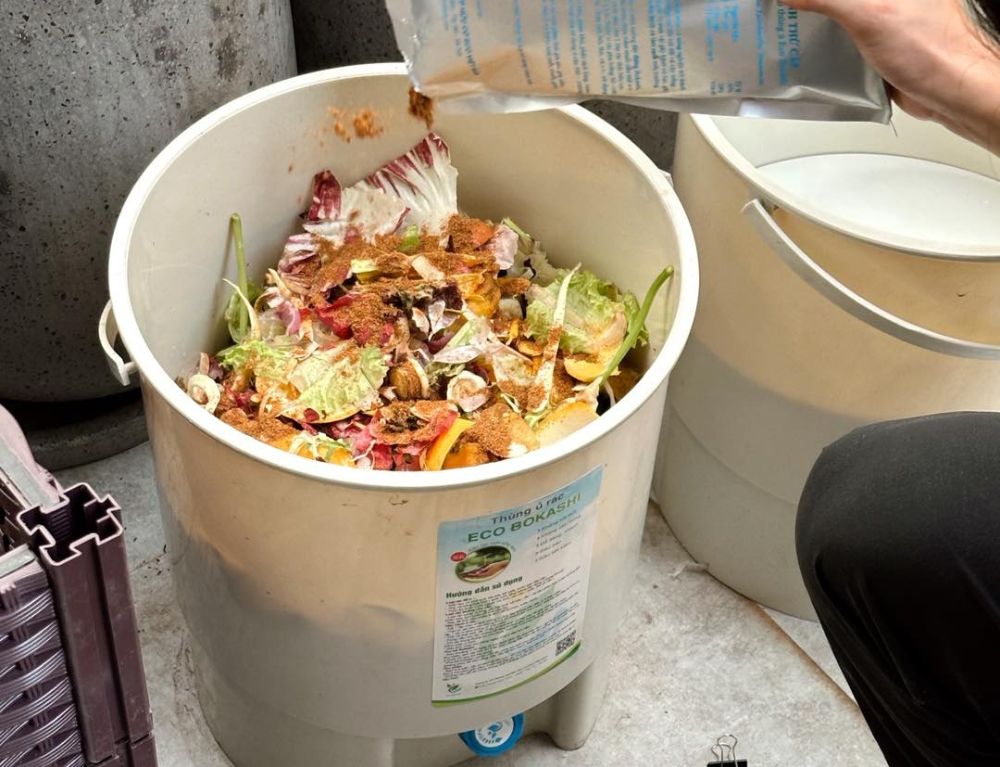
The art of fermentation at Tales is not only about flavor but also about connection – between people and nature – through time, patience, and a sustainable philosophy. From ingredients once deemed “waste,” Tales breathes new life into them, turning them into inspiring dishes and beverages. This stands as a testament to the boundless regenerative power of gastronomy – where creativity not only delivers delightful tastes but also spreads the message of green living and zero-waste.
_________
Tales by Chapter
The first zero waste plant-based dining in Vietnam
Add: 10 Nguyen Thanh Y, Tan Dinh, Ho Chi Minh City
Hotline: +84 368 150 125
E-mail: reservation@talessgn.com - Reservation
Opening hours: 7.00pm – 11.00pm (Closed Sunday)

